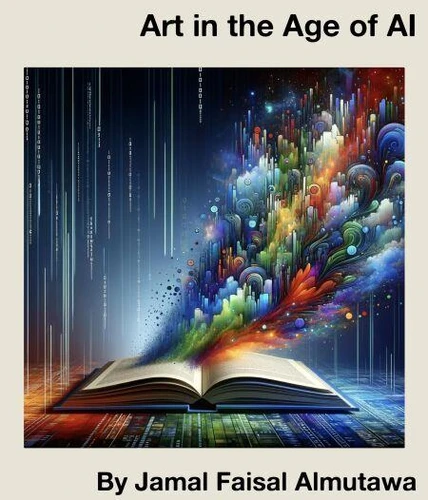Art in the Age of AI
Par :Formats :
Disponible dans votre compte client Decitre ou Furet du Nord dès validation de votre commande. Le format ePub protégé est :
- Compatible avec une lecture sur My Vivlio (smartphone, tablette, ordinateur)
- Compatible avec une lecture sur liseuses Vivlio
- Pour les liseuses autres que Vivlio, vous devez utiliser le logiciel Adobe Digital Edition. Non compatible avec la lecture sur les liseuses Kindle, Remarkable et Sony
- Non compatible avec un achat hors France métropolitaine
 , qui est-ce ?
, qui est-ce ?Notre partenaire de plateforme de lecture numérique où vous retrouverez l'ensemble de vos ebooks gratuitement
Pour en savoir plus sur nos ebooks, consultez notre aide en ligne ici
- FormatePub
- ISBN8224306190
- EAN9798224306190
- Date de parution10/05/2024
- Protection num.Adobe DRM
- Infos supplémentairesepub
- ÉditeurVirtued Press
Résumé
AI Art, also known as text-to-image synthesis or generation, uses artificial intelligence algorithms to create and manipulate visual content. Examples showcase the impressive outcomes achieved, with detailed, lifelike images generated from text prompts alone. Text-to-image models work by training on massive datasets of images and descriptions to learn patterns. The process involves the model breaking down the prompt into key elements and using its learned knowledge to visualize and combine them realistically.
The applications of AI Art are vast, spanning creative fields, gaming, marketing, medicine and more. It augments human creativity. Accessing AI image generators is possible online and offline through various platforms like DALL-E, Midjourney, Stable Diffusion, and Canva. Building an effective prompt involves clearly stating the main subject, then adding refinements, details, and output requirements.
The book provides examples of using AI for applications like package graphics, mascot designs, house visualizations, logos, and book covers. Future developments may include navigable 3D scenes, movie-like captures, and gaming integration, potentially revolutionizing creative industries.
The applications of AI Art are vast, spanning creative fields, gaming, marketing, medicine and more. It augments human creativity. Accessing AI image generators is possible online and offline through various platforms like DALL-E, Midjourney, Stable Diffusion, and Canva. Building an effective prompt involves clearly stating the main subject, then adding refinements, details, and output requirements.
The book provides examples of using AI for applications like package graphics, mascot designs, house visualizations, logos, and book covers. Future developments may include navigable 3D scenes, movie-like captures, and gaming integration, potentially revolutionizing creative industries.
AI Art, also known as text-to-image synthesis or generation, uses artificial intelligence algorithms to create and manipulate visual content. Examples showcase the impressive outcomes achieved, with detailed, lifelike images generated from text prompts alone. Text-to-image models work by training on massive datasets of images and descriptions to learn patterns. The process involves the model breaking down the prompt into key elements and using its learned knowledge to visualize and combine them realistically.
The applications of AI Art are vast, spanning creative fields, gaming, marketing, medicine and more. It augments human creativity. Accessing AI image generators is possible online and offline through various platforms like DALL-E, Midjourney, Stable Diffusion, and Canva. Building an effective prompt involves clearly stating the main subject, then adding refinements, details, and output requirements.
The book provides examples of using AI for applications like package graphics, mascot designs, house visualizations, logos, and book covers. Future developments may include navigable 3D scenes, movie-like captures, and gaming integration, potentially revolutionizing creative industries.
The applications of AI Art are vast, spanning creative fields, gaming, marketing, medicine and more. It augments human creativity. Accessing AI image generators is possible online and offline through various platforms like DALL-E, Midjourney, Stable Diffusion, and Canva. Building an effective prompt involves clearly stating the main subject, then adding refinements, details, and output requirements.
The book provides examples of using AI for applications like package graphics, mascot designs, house visualizations, logos, and book covers. Future developments may include navigable 3D scenes, movie-like captures, and gaming integration, potentially revolutionizing creative industries.


















